Priests’ pet dogs open doors to evangelization and fun

Related videos will be posted over the Jefferson City diocese’s Facebook, Instagram and X feeds:
Facebook: https://www.facebook.com/diojeffcity
Instagram: https://www.instagram.com/diojeffcity
Twitter: https://twitter.com/DioJeffCity
SCROLL THE ARROWS to see more photos.
Sit right back and you’ll hear a tail.
Listen closely. It’s hard to hear it wagging with all those children around.
“It’s always a good time for everybody when I have Miss Africa with me!” proclaimed Father Henry Ussher.
“Children come out and call her and say they want to pet her,” he said of the floppy little Shih Tzu mix that has learned how to dance. “People come up and talk to me, even if they’re not Catholic.”
That’s a common theme.
“If I ever take the dogs out when the kids are there, the kids just swamp us,” said Father William Peckman. “The dogs love it, and the kids love it.”
His 13-year-old wire-haired dachshund, Buddy, and 2-year-old goldendoodle, Molly, are but a few of the heavenly hounds that help keep things lively in rectories across the diocese.
“There’s definitely a humanizing factor to having the pets,” said Fr. Peckman, pastor of Immaculate Conception Parish in Macon, St. Mary Parish in Shelbina and the Mission of Sacred Heart in Bevier.
“I’ve found that people who, for lack of a better term, are ‘afraid’ of priests. If they have a dog like the priest does, it becomes a moment of a little connection,” he said.
Father Joshua Duncan called his dogs “a natural conversation starter.”
“At funerals or even at weddings, when people who barely set foot in church find out that I have a dog, it just opens up the conversation amazingly,” he said. “They’re showing me pictures and asking me for pictures.
“And sometimes, they ask me the deeper questions.”
Fr. Duncan is convinced that Ollie and Bailey, his Labrador retrievers, helped him bond more quickly with the people of St. Mary Parish in Glasgow and St. Joseph Parish in Fayette when he became their pastor.
“It just seemed like an easy, natural thing to lead into Father being the father of the parish,” he said.
He remembers the first time the children at St. Mary School in Glasgow met him and his dogs.
“The kids really took to them and opened up to me right away,” he recalled. “It was kind of like, ‘Hey, you have a dog. I have a dog, too! What are some of your other favorite things?’”
Father William Debo agreed that his dog helps open the door to evangelization.
“It’s always a source of conversation when people see me out with this little guy,” he said of his 12-year-old Maltese, J.P. “I think people appreciate seeing one of God’s creatures.”
He said having a dog really warmed up the big, 125-year-old rectory at St. George Parish in Hermann and continues to keep things interesting now that he’s pastor of Holy Family Parish in Freeburg and Sacred Heart Parish in Rich Fountain.
“It’s nice to go home when you get some down time and have a pet sit on your lap and be so enthusiastic to see you,” he said.
“… And wanting to be fed!”
“Ball of fluff”
Fr. Peckman inherited Buddy when the priest’s father died almost 11 years ago.
“I had two chairs in the rectory that Dad had sat in, and Buddy tore them both up,” said Fr. Peckman. “The vet said, ‘Your Dad’s scent was on those. That was his way of grieving.’”
Molly was a farewell and thank-you gift from a parishioner at Ss. Peter & Paul Parish in Boonville, where Fr. Peckman previously served as pastor.
“I try to keep two dogs because I’m gone a lot during the day,” he stated. “They keep each other company and they’re both well trained.”
As he usually adopts rescue dogs, Molly is the first time he’s raised a puppy.
Families in his parishes volunteer to take care of both dogs whenever Fr. Peckman leaves town.
He prefers having gentle dogs around the parish premises.
“The rectory here in Macon is like Grand Central Station, so I don’t want a guard dog,” he stated. “I want a big ball of fluff that won’t scare people.”
He said it’s nice being greeted by creatures that are happy to see him, “no matter what.”
Dominic vobiscum
Father Dylan Schrader adopted his dog from a local pound.
“I picked him because he seemed calm and gentle,” said Fr. Schrader, who’s pastor of St. Joseph Parish in Westphalia and St. Anthony of Padua Parish in Folk.
“It’s important for a priest’s dog to be totally safe around people and non-disruptive,” he stated. “I also liked that he was already named Dominic, which I thought was a good name.”
Fr. Schrader’s childhood pastor, Father John Groner, now deceased, kept dogs in the rectory of Holy Family Parish in Hannibal.
“Before I made my First Communion, I did an interview with him at the rectory and saw his dogs,” Fr. Schrader recalled.
Then, as now, he appreciates how keeping a pet can help break down barriers between the shepherd and his flock.
“Many people, though not all, respond positively to pets, so having one can be a good way to connect with people,” said Fr. Schrader. “Walking the dog becomes an opportunity to encounter people and also to pray while getting some exercise.”
The children at St. Joseph School love when Dominic arrives with their pastor.
“He visits the classrooms with me most of the time,” said Fr. Schrader.
Dominic can also be a calming presence in other settings.
“He isn’t a trained therapy dog, but when people come for counseling or spiritual direction, he may be present, and many people find him comforting,” said Fr. Schrader. “Of course, I make it clear that if anyone is not comfortable around dogs, I’ll gladly put him out of the room.”
I hope you dance
Fr. Ussher, a missionary priest from the Diocese of Wiawso, Ghana, is pastor of St. Clement Parish in St. Clement, St. Joseph Parish in Louisiana and the Mission of Queen of Peace in Clarksville.
Africa is a Shih Tzu mix that he received as a gift from a parishioner when he was serving at St. Patrick Parish in Laurie in 2017.
“She stays in the rectory and sometimes goes with me over to school,” he said. “She’s so friendly and gets along with everybody who comes around.”
Fr. Ussher named her after his home continent.
“It helps me always remember where I’m from and the community that formed me and sent me here to do my best to help,” he said.
He taught her how to stand on her hind legs and dance.
Fr. Ussher previously had a dog and a cat in his rectory when he was serving as a pastor in Ghana.
“I’ve also had two monkeys as pets,” he said. “The first one was Perpetua. The second one was Rosemary.”
One thing they’ve all had in common is the affection they show and “the way they welcome you.”
“Africa knows when I’m coming and going,” Fr. Ussher noted. “Whenever I go out for a long time and come back, it’s beautiful.”
He said walking with her around the church parking lot every morning helps them both get exercise.
He noted that in Ghana, “most of our dogs stay outside and they keep watch in the night and they ward off intruders.”
Dogs are also kept for hunting, and cats for catching mice, “but not so much for petting,” he said.
Also, until recently, food made specially for pets wasn’t available in Ghana, “so they ate what we eat.”
Skin deep
Father Stephen Jones’s dog, Trebby, draws a lot of attention.
“He’s a very interesting beast,” said Fr. Jones, diocesan director of stewardship. “He’s an American hairless terrier.”
Fr. Jones was previously a priest of the Anglican Communion, which allows their priests to marry. He and his wife became Roman Catholic in 2010, and Fr. Jones was given a dispensation to be ordained a Roman Catholic priest in 2012.
They have four children, the oldest of whom shares Fr. Jones’s severe allergies to cats and dogs.
“Our kiddos wanted an inside pet, so I started researching hypo-allergenic dogs,” said Fr. Jones.
He found out about a breeder in Versailles who specializes in hairless terriers.
“One day when my wife was out of town, I said to my kids, ‘Let’s go visit some dogs!’” he recalled. “We did, and they fell in love with these hairless creatures.”
They got on a waiting list, and Trebby eventually came to live with them.
“He’s 11 or 12 pounds of skin,” the priest noted. “Literally no hair, except his eyelashes and whiskers.”
No fur or dander means no allergic reactions.
“But in the summer, he gets sunburned,” said Fr. Jones. “And in wintertime, he has to wear a coat, because he’s freezing all the time!”
Trebby gives Fr. Jones a unique icebreaker with people he hasn’t met yet.
“People who have never seen him before want to know about him,” the priest noted. “They look at him and say, ‘What in the world is that!’”
His children enjoy drawing eyebrows on Trebby using nontoxic, water-soluble ink.
“Mad, sad, surprised or whatever mood you want him to be!” he noted.
Fr. Jones is amazed at how perceptive a dog can be.
“They know when you’re upset, they know when you’re happy,” he said. “They can read feelings in ways that if you haven’t experienced it, you can’t imagine.”
Dog days
In moments of feigned exasperation, Fr. Debo occasionally throws out the quip: “Even J.P. listens to me better than you do!”
The priest always liked Maltese dogs and previously had one that he named after St. Bridget.
After that dog died, Fr. Debo found out about some available dogs in Kansas City.
As it turns out, the woman there enjoyed raising Maltese dogs for show, but she had to go back to work full-time after her husband passed away.
Several people were interested in adopting dogs from her.
Fr. Debo went to her home to meet her dogs in-person and let her ask questions about where he lived and what kind of accommodations he had.
“J.P. kind of stood back at a distance and wasn’t as friendly as the other dogs that were jumping on me,” the priest recalled.
Yet, the floppy creature was very stately.
“He definitely looked like a show dog,” Fr. Debo noted.
Just as the interview was winding down and the priest was getting ready to leave, the woman picked up J.P. and said, “Don’t forget to take your dog!”
Back home, a parishioner noticed that the dog’s fur was as white as the pope’s daily attire.
“I always tell people he’s named after Pope John Paul, but he’s no saint!” said Fr. Debo. “He has training issues and thinks he rules the roost.”
Fr. Debo is quick to ask people who visit him in the Freeburg or Rich Fountain rectory whether they’re allergic to dogs or are afraid of them.
“He is absolutely a great reminder that someone is at the door,” the priest noted. “He always senses that people are at the door before they ring.”
J.P. gets a little spooked around big groups of people, but the children at Holy Family and Sacred Heart schools can’t get enough of him.
“They know I have a dog and they talk about the dog a lot,” he said. “They always have questions about him.”
“Holy hobby”
Fr. Duncan remembers Chichi, the Yorkshire terrier his childhood pastor, the late Father Henry Reichert, kept at the rectory of Immaculate Conception Parish in Jefferson City.
“Father was such a tall, gentle giant … and he had such a little dog!” Fr. Duncan recalled. “As a kid in kindergarten or first-grade, I thought it was the coolest thing.”
He got his own first dog as a priest while serving as associate pastor of Our Lady of Lourdes Parish in Columbia.
He asked his pastor, Father Christopher Cordes, for permission.
“He didn’t give me an immediate yes or no,” Fr. Duncan recalled. “He thought about it and took into account that I was taking my parish responsibilities appropriately.”
Through research, Fr. Duncan found that Labradors tend to be friendly, easy to work with, and good around children.
“Having the dogs gives me a healthy and a holy hobby,” he said. “If we throw ourselves too much into work, we lose personal activities that help give us balance.
“People can’t relate very well to the priest who just works all the time,” he added. “You have to be a human, as well.”
Fr. Duncan said children are often amazed to learn that a priest can keep dogs.
They also enjoy hearing about how Fr. Duncan takes his on vacation with him, to places where they can hike, fish and swim.
“I think they like knowing that I can be a priest and have hobbies, too,” he said.
Ollie and Bailey enjoy visiting St. Mary School during lunch or after school each day.
“Both of them — their favorite word is ‘school!’” he said. “They jump up immediately and go to the door. They know they’re going to get all that love and attention from the kids.”
Prudence and patience
Fr. Schrader pointed out that according to the Catechism of the Catholic Church, it’s okay to love animals, “but it also cautions us not to treat them like people. Pets are not children.”
He believes that a priest having a dog is usually a good thing, “but it depends on the dog and on the assignment.”
“A safe, well-behaved dog where the dog has a good place to live, to be outside, and to be taken care of properly can be great,” he said.
But he noted that priests have to be flexible and ready to serve in a variety of different places and ministries.
“We have to prioritize our ministry over our pets,” he said, “so it’s best when a pet can help in our ministry rather than become a burden to it.”
Fr. Debo and Fr. Peckman said one of the best lessons they learn from having pets is patience.
“Sometimes,” said Fr. Peckman, “I have to remind myself, ‘You can’t let a dog determine your mood.’ Accidents happen, life goes on, and getting upset about it only makes it worse.”
He pointed out that priests are personally responsible for their pets’ food and medication and for any damage they do.
Having pets isn’t always fun, “but it’s been more than worth it to me,” he said.
“It’s not for everybody, for sure,” Fr. Debo noted. “But if you are willing to put in the work and be consistent in providing proper care it can be very rewarding.”
Comments
Other items that may interest you
Services
The Catholic
Missourian
2207 W. Main St.
Jefferson City MO 65109-0914
(573) 635-9127
editor@diojeffcity.org

.jpg)
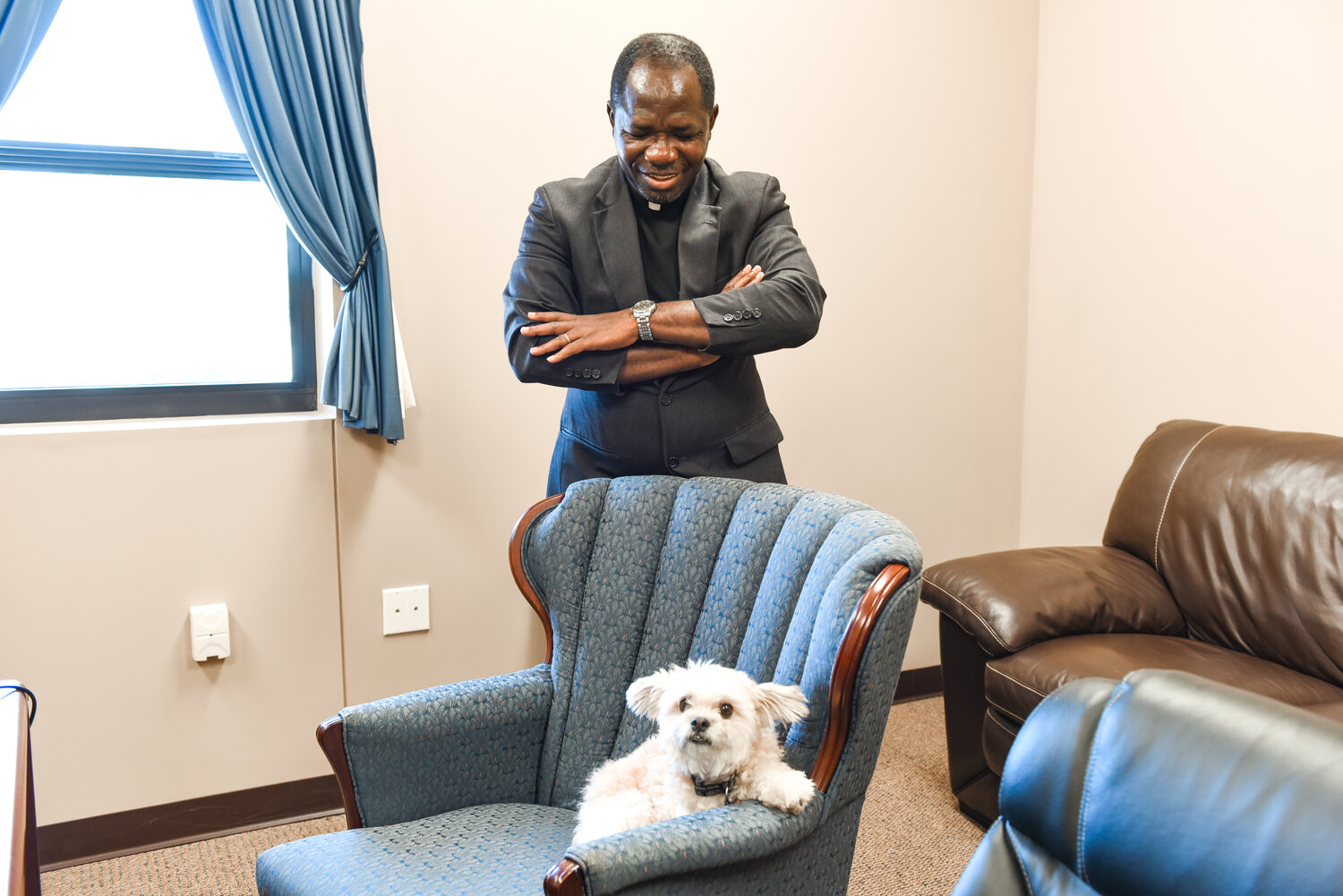
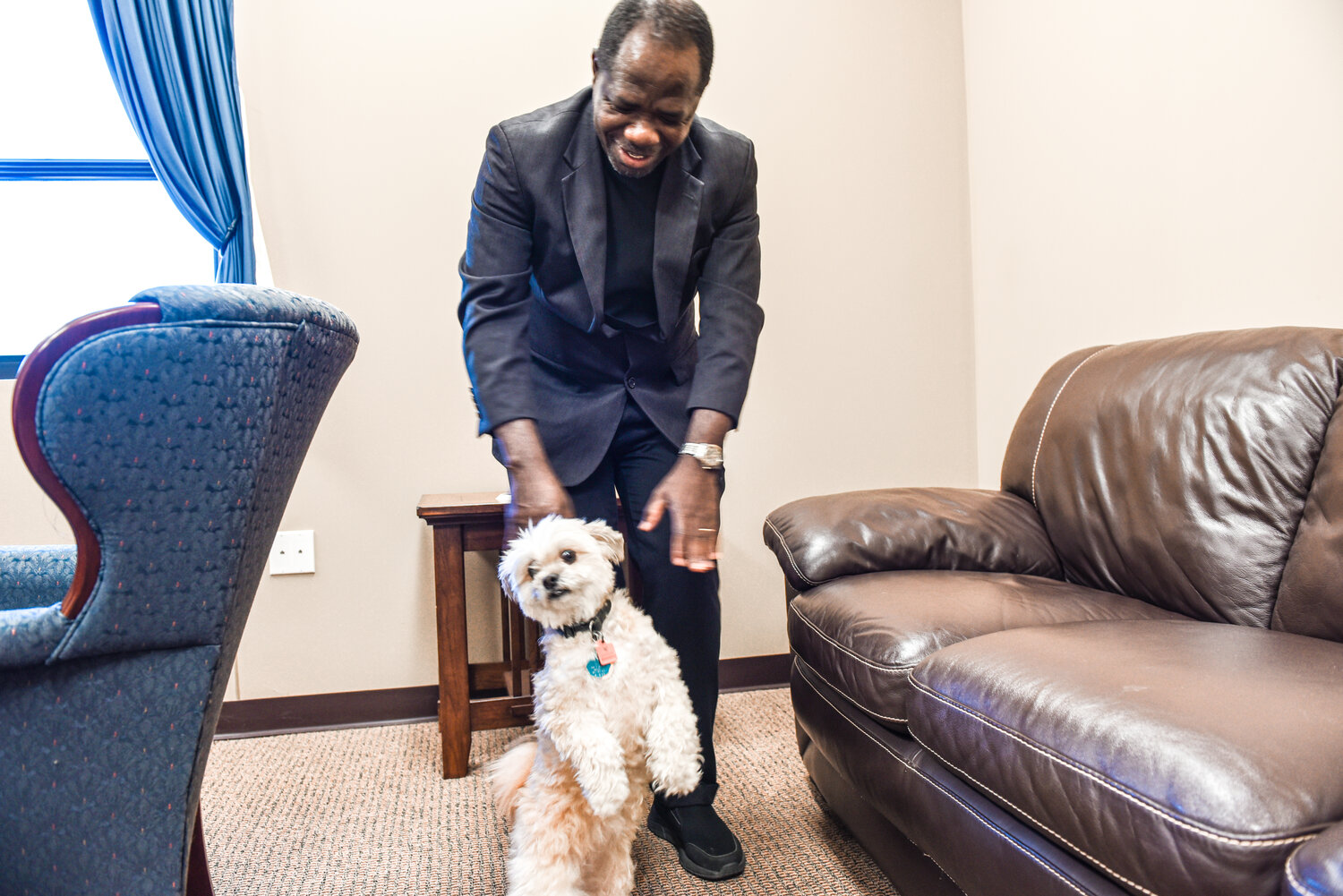
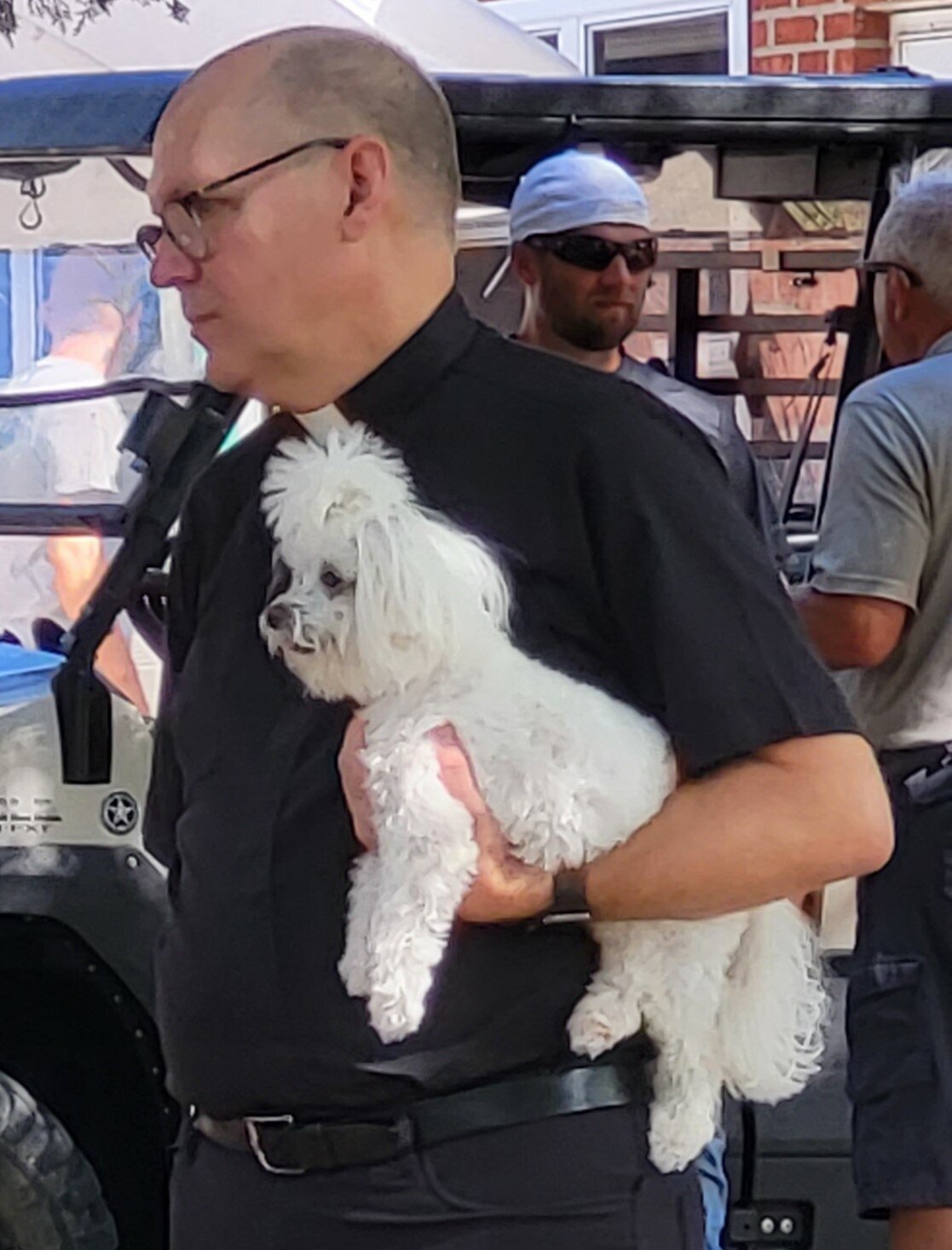
.jpg)
.jpg)
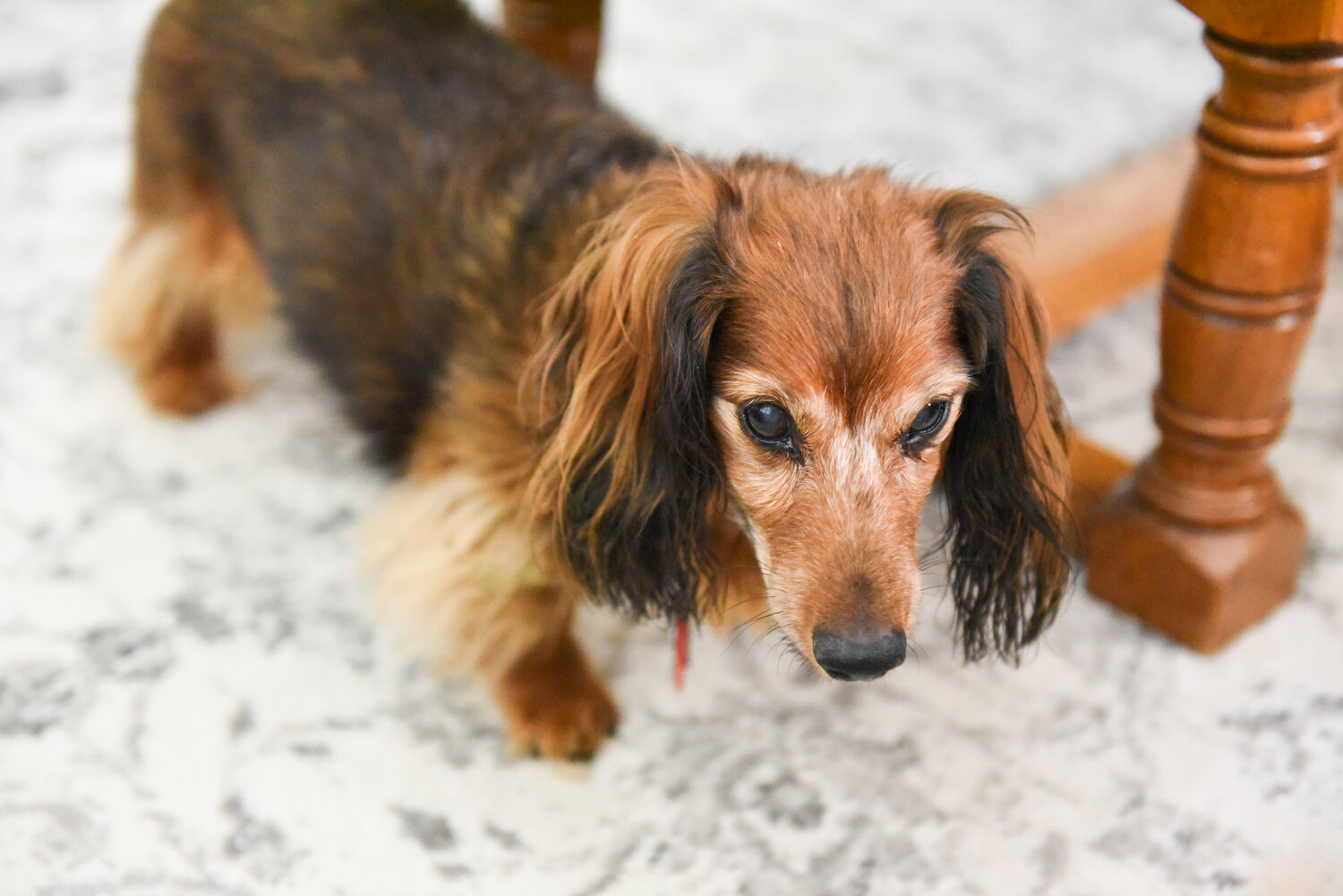
.jpg)
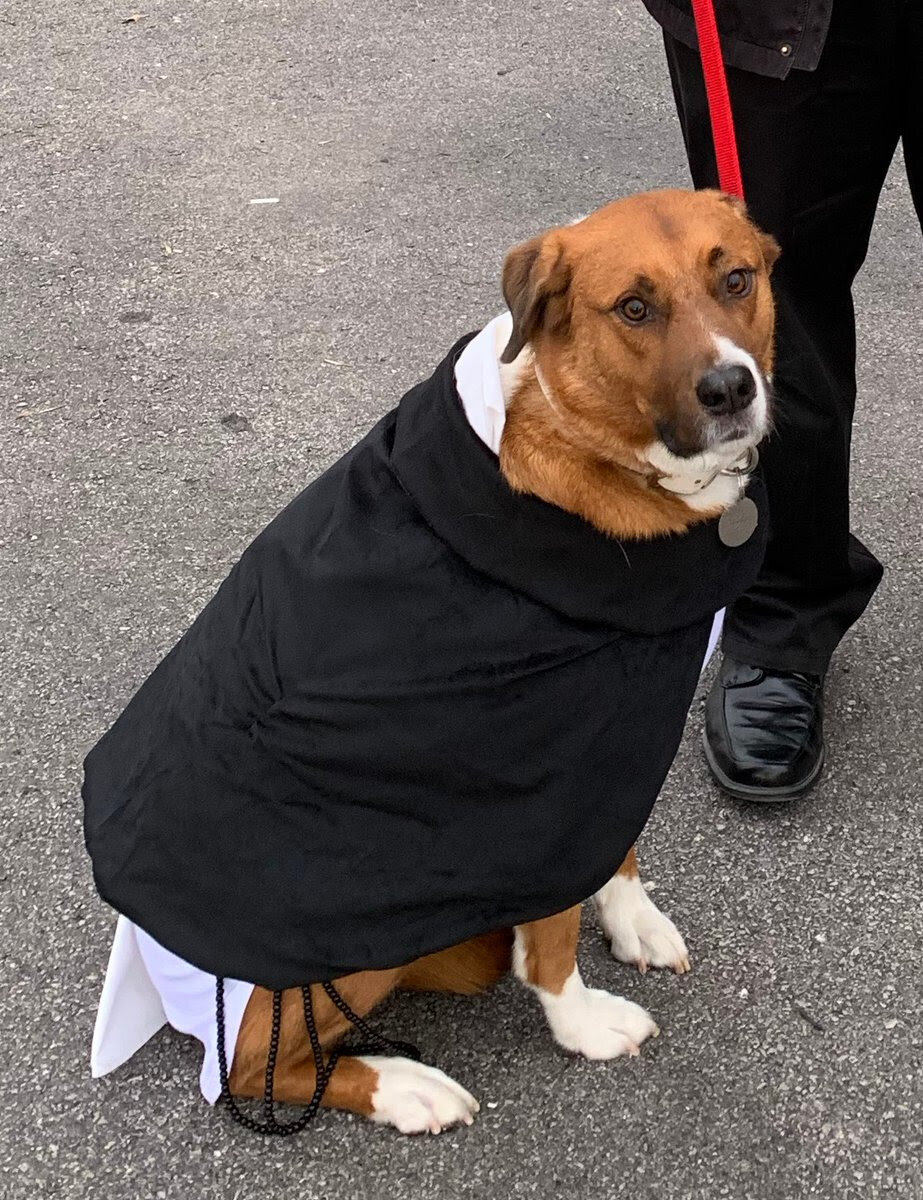
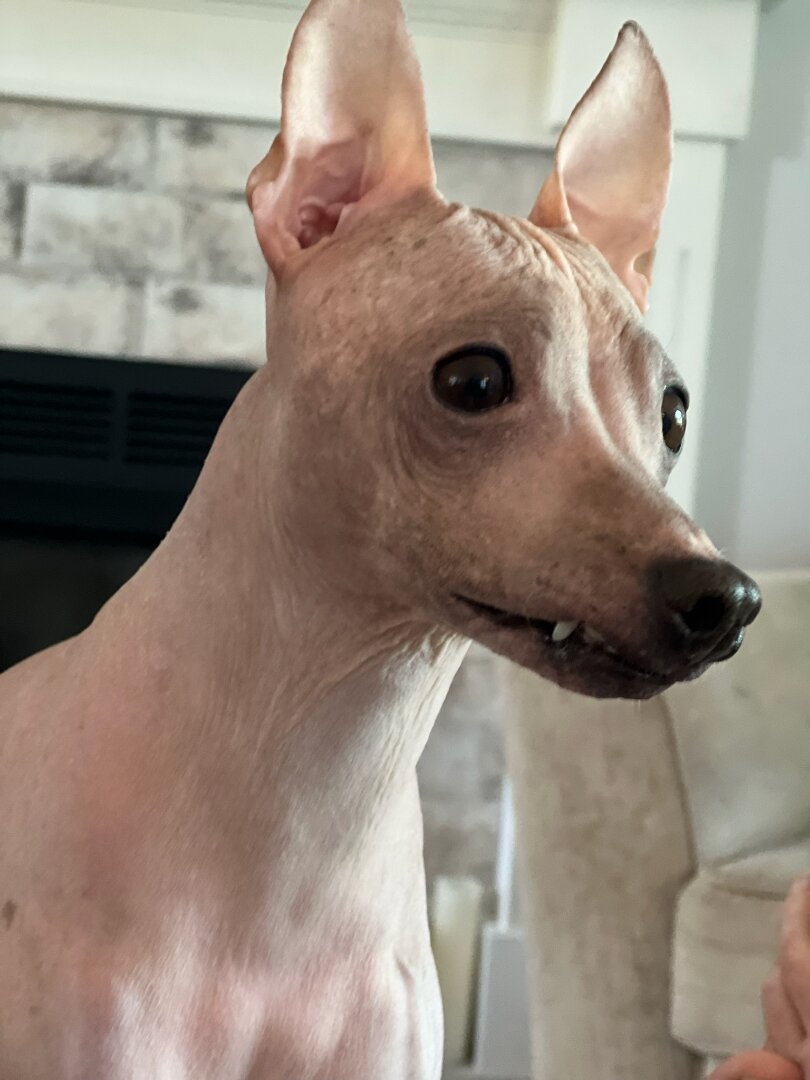

 and Chichi at IC Rectory in the 1980s.jpg)




